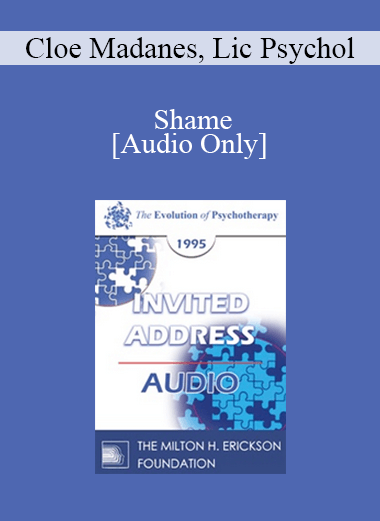- Topic Areas:
- Invited Address
- Category:
- Evolution of Psychotherapy | Evolution of Psychotherapy 1995
- Faculty:
- Cloe Madanes, HDL, LIC | James Bugental, PhD
- Course Levels:
- Master Degree or Higher in Health-Related Field
- Duration:
- 1:27:24
- Format:
- Audio Only
- Original Program Date :
- Dec 13, 1995
Description
Description:
Invited Address Session 3 Part 1 from the Evolution of Psychotherapy 1995 – Shame: How to Bring a Sense of Right and Wrong Into the Family
Featuring Cloe Madanes, Lic Psychol; with discussant James FT Bugental, PhD.
Moderated by Betty Alice Erickson, MS.
Madanes will present guidelines for the positive use of shame in couples and families. Stories from therapy will be told to reveal complicated problems in which shame, sex, power and love are interconnected. Looking at extreme cases of violence will throw light on when it is appropriate to experience shame and how to recover from the pain that shame represents. In our families and in society, we use shame as a secret weapon in restraining the abuse of power and the expression of violence. Yet there are various sides to shame. It can be experienced by victims instead of victimizers, and it can bring about compassionate deeds or lead to guilt and failure. Feelings of shame often conceal deep, hidden issues inside a family, an organization, or a nation. The most important principle of Madanes’ approach to the therapy of violence is the redistribution of responsibility and shame, so that the victimizer, and not the victim, carries the responsibility and the shame. Just as violence is the most serious problem between nations, among ethnic groups, and in the streets of our cities, so it is a serious problem in the family. The abuse of wives by husbands and of children by parents constitutes the most insidious, prevalent and destructive mental health problem that therapists are called to solve today. Madanes will offer some strategies to solve these problems.
Educational Objectives:
- To list three criteria to identify when shame is an appropriate emotion.
- To describe three ways to redistribute who carries shame in the family.
- To list four ways to transform shame into reparation.
*Sessions may be edited for content and to preserve confidentiality*







